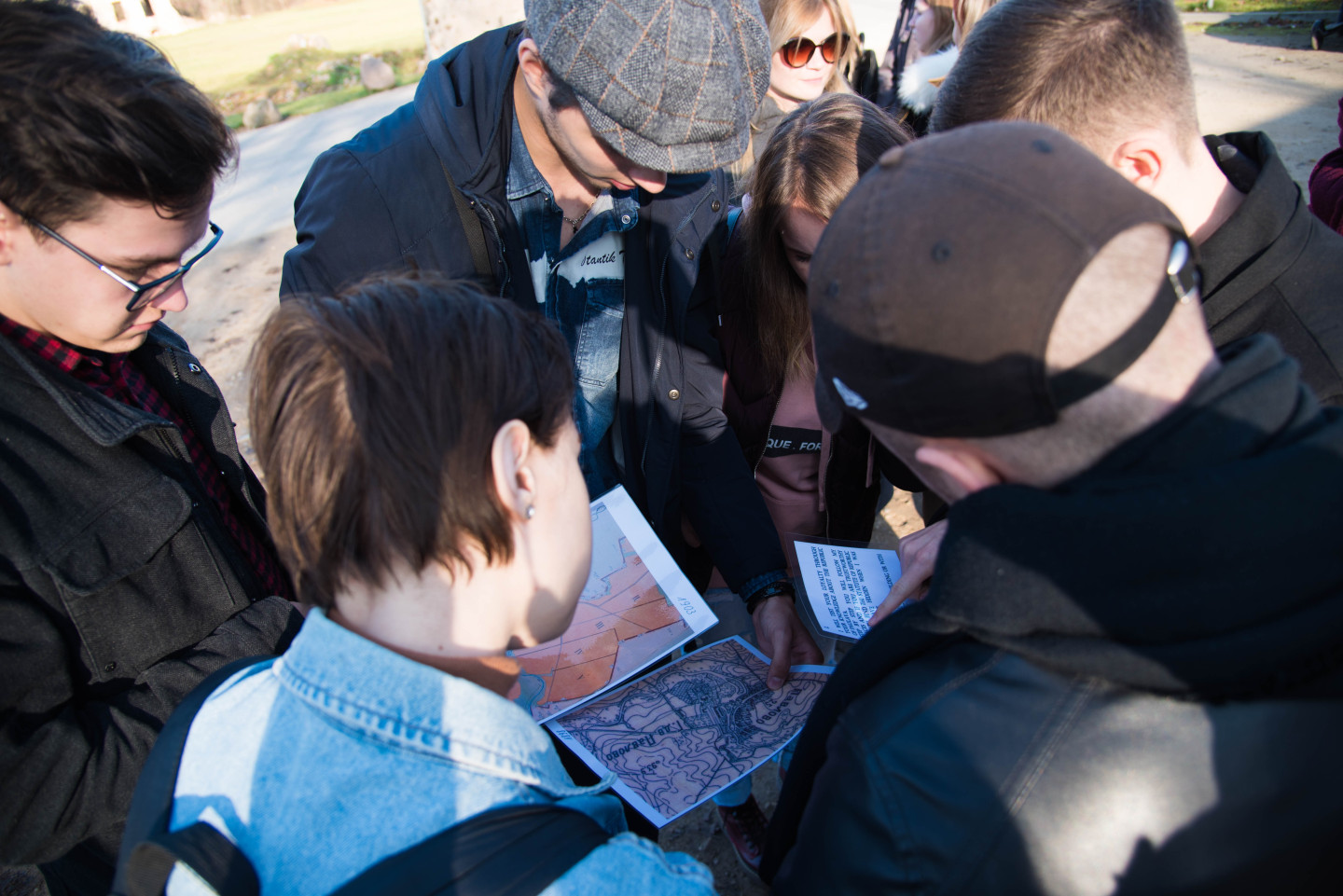The EUNIC Baltic Roadtrip 2019 is a regional project initiated by EUNIC Latvia and implemented together with EUNIC Estonia and Lithuania and supported by the Cluster Fund Call for Proposals October 2018.
The EUNIC Baltic Roadtrip 2019 is a regional project initiated by EUNIC Latvia and implemented together with EUNIC Estonia and Lithuania and supported by the Cluster Fund Call for Proposals October 2018.
After several months of preparation, this international short-term Roadtrip project, 23-30 October 2019, was launched in Vilnius involving 24 young people aged 18-26 from Šalčininkai (Lithuania), Daugavpils (Latvia) and Valga (Estonia). Not knowing each other before the youngsters travelled through the three Baltic cities meeting along the way local and European experts to learn and think creatively about three underlining topics: ‘Cultural and Historical Heritage’ in Šalčininkai, ‘Active Participation and Initiatives’ in Daugavpils and ‘Urban Planning and Youth Engagement’ in Valga. The trip ended with a closing party in Riga during which participants and cluster colleagues shared their experiences of creating awareness of togetherness through this project.
The support from the Cluster Fund, allowed the three clusters to involve a temporary project coordinator to implement this project and oversee the practical aspects of organising it. Cluster colleagues have been very positive about the crucial role of the coordinator and enthusiastic about future regional cooperation:
“Now that we’ve had this first cooperation, we really would like to go on and think about the future together” - Anne-Sophie from EUNIC Latvia
“It makes a lot of sense also, because EUNIC is about transcending borders and why shouldn’t we do it also in our work instead of just staying in our individual clusters. It’s something that could be done in other parts of the EUNIC network” - Simon from EUNIC Latvia
The project aimed to create mutual understanding, dialogue and exchange between areas of the three Baltic states that have much in common and share some of the same challenges. The roadtrip gave the young participants a platform where they could meet and learn from each other and from international experts, and where they could reflect on the shared heritage of their countries and the future of the places they come from. However, the youngsters took active part in preparatory sessions in the months before in their national groups. Through a range of diverse activities, meeting with different local and European experts from different countries, sharing their experiences and ideas, exploring the places, discussions, different mapping activities, working in small groups and developing non-formal education activities, the young participants took active part in co-creating the content and learned how to take initiatives. During the closing event in Riga, participants shared their positive experiences of the process and gratification of having taken part:
“The most amazing thing I experienced was seeing such young people from different backgrounds uniting and having brainstorming sessions. The one thing I’ll take home is huge inspiration for my daily life incredibly inspired by the experts we met in this project to take more action, be more creative.” – Viktoria from Daugavpils, Latvia
“The thing I really love about this roadtrip is that Baltic people can come together to share their ideas, share their thoughts about different things. Also, we can collaborate, and we also have new friends for life, and I love that. So I think the thing I’ll take home the new connections that I have when I’m in different countries (…) and also I’m taking home new ideas that I would like to do in my home town, Volga, and better the experience for young people there.” – Tala from Valga, Estonia.

